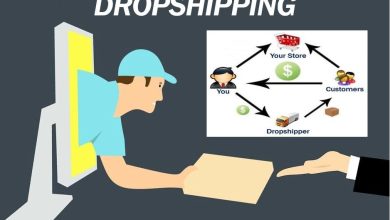How to Start an E-commerce Business in Nigeria
How to Start an E-commerce Business in Nigeria
How to Start an E-commerce Business in Nigeria
The e-commerce industry in Nigeria is experiencing rapid growth, making it an opportune time to start your own online business.
With the increasing popularity of online shopping and advancements in technology, setting up an e-commerce business has become more accessible than ever.
In this comprehensive guide, we will walk you through the essential steps to start an e-commerce business in Nigeria.
From planning and platform selection to marketing and customer service, we’ve got you covered.
Let’s dive in and unlock the potential of the Nigerian e-commerce market.
Research and Planning
Before launching your e-commerce business, thorough research and planning are essential. Understand the Nigerian e-commerce market, target audience, and competition. Identify a niche or product category that aligns with your interests and has demand in the market. Create a comprehensive business plan that includes your goals, product selection, pricing strategy, marketing approach, and financial projections.
Steps to Start an E-commerce Business in Nigeria
Choose Your E-commerce Model
Decide on the e-commerce model that suits your business goals. Options include:
– Inventory-Based Model: Source, store, and ship products directly to customers.
– Dropshipping Model: Partner with suppliers who handle product storage and shipping.
– Print-on-Demand Model: Create custom products on demand, partnering with printing services.
Select the Right E-commerce Platform
Choose a user-friendly and scalable e-commerce platform that meets your business requirements. Consider factors such as ease of use, payment gateway integration, mobile responsiveness, and available features. Popular platforms in Nigeria include Shopify, WooCommerce, and Magento.
Set Up Your Online Store
Design an attractive and user-friendly online store. Customize your store’s theme, layout, and branding to reflect your brand identity. Ensure seamless navigation, clear product descriptions, high-quality product images, and easy-to-use search and filter options.
Establish Reliable Payment and Delivery Solutions
Integrate secure payment gateways that cater to the Nigerian market, such as Flutterwave, Paystack, or Interswitch. Provide multiple payment options to cater to customer preferences. Partner with reliable logistics companies to ensure smooth and timely product delivery.
Develop a Marketing Strategy
Create a comprehensive marketing strategy to drive traffic and generate sales. Utilize various digital marketing channels, such as social media advertising, influencer marketing, search engine optimization (SEO), and email marketing. Engage with your audience through compelling content, promotions, and personalized offers.
Optimize for Mobile Devices
Given the high mobile penetration in Nigeria, ensure your e-commerce store is mobile-responsive and optimized for mobile browsing. Implement a mobile-first design approach to provide a seamless user experience across devices.
Provide Exceptional Customer Service
Deliver outstanding customer service to build trust and loyalty. Provide prompt responses to customer inquiries and address any issues or concerns efficiently. Implement a hassle-free return and exchange policy to enhance customer satisfaction.
Frequently Asked Questions (FAQs)
How much capital do I need to start an e-commerce business in Nigeria?
The capital required to start an e-commerce business can vary depending on factors such as product selection, marketing budget, technology investments, and operational costs. It is advisable to have a detailed business plan that outlines your estimated expenses, including website development, inventory procurement, marketing campaigns, payment gateway integration, and logistics. Starting capital can range from ₦500,000 to several million Naira, depending on the scope






